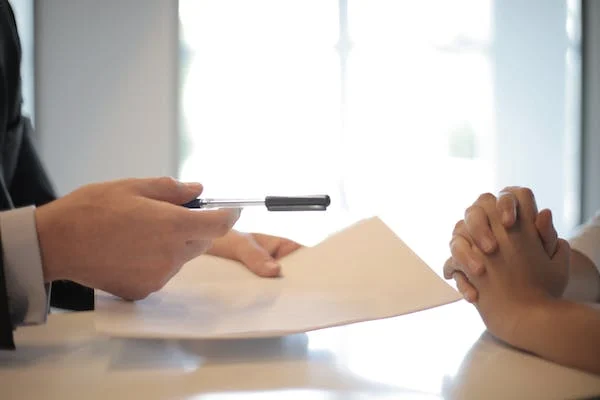
Frequently Asked Questions
Who is required to obtain a DEA registration?
Any person, meaning an individual or corporate entity, who is engaged in the manufacturing, distribution, dispensing, importation or exportation, of controlled substances is required to obtain a DEA registration.
How do I apply for a DEA license?
Applicants are required to complete an Application for Registration Under the Controlled Substances Act of 1970, and provide such additional information as may be required by DEA investigators.
In years past, DEA applications for registration were processed as a matter of routine and in fairly short order. Not anymore. The application process for DEA registration is now fraught with peril, as DEA investigators are conducting extensive inquiries into whether registration "is consistent with the public interest."
DEA Registration Requirements
Under federal law, every person who manufacturers, distributes, dispenses, imports, or exports controlled substances is required to obtain a DEA registration. In addition, state law may require additional registrations or licenses depending on class of trade.
Different requirements also apply depending on whether the registration is a new registration or renewal. For many businesses, a change of ownership may require a new DEA registration and, if that registration is delayed, it can prevent the new owner from obtaining obtaining contracts from PBMs and payors, including Medicare.
DEA Application Requirements
DEA requires that controlled substance applicants complete an Application for Registration Under the Controlled Substances Act of 1970, found HERE.
The application contains several questions regarding the applicant's background. For example, corporate applicants must certify whether "any officer, partner, stockholder or proprietor" has "ever surrendered or had a federal controlled substance registration revoked, suspended, restricted or denied, or ever had a state professional license or controlled substance registration revoked, suspended, denied, restricted, or placed on probation, or is any such action pending?"
Finally, applicants must certify the accuracy and truthfulness of all information provided under penalty of law.
DEA Applicants May Be Required to Provide Additional Information
Although the DEA application form is relatively straightforward, the DEA is authorized to request any and all additional information from the applicant as it determines necessary.
Specifically, under this broad authority, DEA "may require an applicant to submit such documents or written statements of fact relevant to the application as he/she deems necessary to determine whether the application should be granted."
In other words, the DEA can ask you whatever they want. And while the information requested may be non-controversial and straight-forward, the time and burden associated with responding to these requests can cause severe delays for the business in other credentialing and licensing applications.
How HLA Can Help DEA Registrants
HLA's attorneys and expert consultants know controlled substance requirements because they used to work for the DEA. We understand the controlled substance registration process, we know what DEA is looking for, and we understand how to demonstrate compliance with the requirements at issue.
For example, registrants must establish that they maintain effective controls against diversion of controlled substances. Depending on the nature of your business, these requirements may vary and are subject to interpretation by DEA investigators.
In short, there are a number of steps that applicants should take to make the application process go as quickly and smoothly as possible. Put differently, applications that do not address what DEA is focused on, or that raise more questions than they answer, will result in a much more intense background check and DEA investigation.
HLA's Nancy Coffey is a former, high-level DEA diversion official who has been retained as an expert in controlled substance litigation and selected by the Attorney General of Massachusetts to serve as an independent monitor in DEA matters. The level of insight that she brings to the application process is unparalleled, and she routinely advises clients on DEA applications for registration and other DEA requirements.
Conclusion
DEA applications for registration are receiving significant scrutiny and background investigation. Contact us today to ensure that your DEA application is properly supported to to avoid unnecessary delays and questions.
MORE ARTICLES BY CATEGORY
The 2025 Healthcare Fraud Takedown Is a Warning Shot for Wound Care Providers
Wound care is now an enforcement priority. The 2025 fraud takedown targets skin substitute billing, graft utilization, and Medicare compliance.
Read More >>FDA and Novo’s Uncharted Waters to Exert Pressure on Hims & Hers and GLP-1 Compounders
Novo’s lawsuit against Hims & Hers, coupled with FDA’s referral to the DOJ, marks a direct escalation against 503A compounded semaglutide. If your pharmacy dispenses, compounds, or markets GLP-1 therapies, this is not a headline, it is a regulatory turning point.
Read More >>What Wells Pharma v. Zyla Life Sciences Means for Compounding Pharmacies and Outsourcing Facilities
A pending Supreme Court case could reshape how compounding pharmacies face litigation under state unfair competition laws tied to FDA approval standards.
Read More >>Health Law Alliance Welcomes Compounding Expert Pharmacist-Attorney Dr. Martha Rumore as Of Counsel
Health Law Alliance adds powerhouse Pharmacist/Attorney Dr. Martha Rumore to their team of boutique healthcare attorneys.
Read More >>





